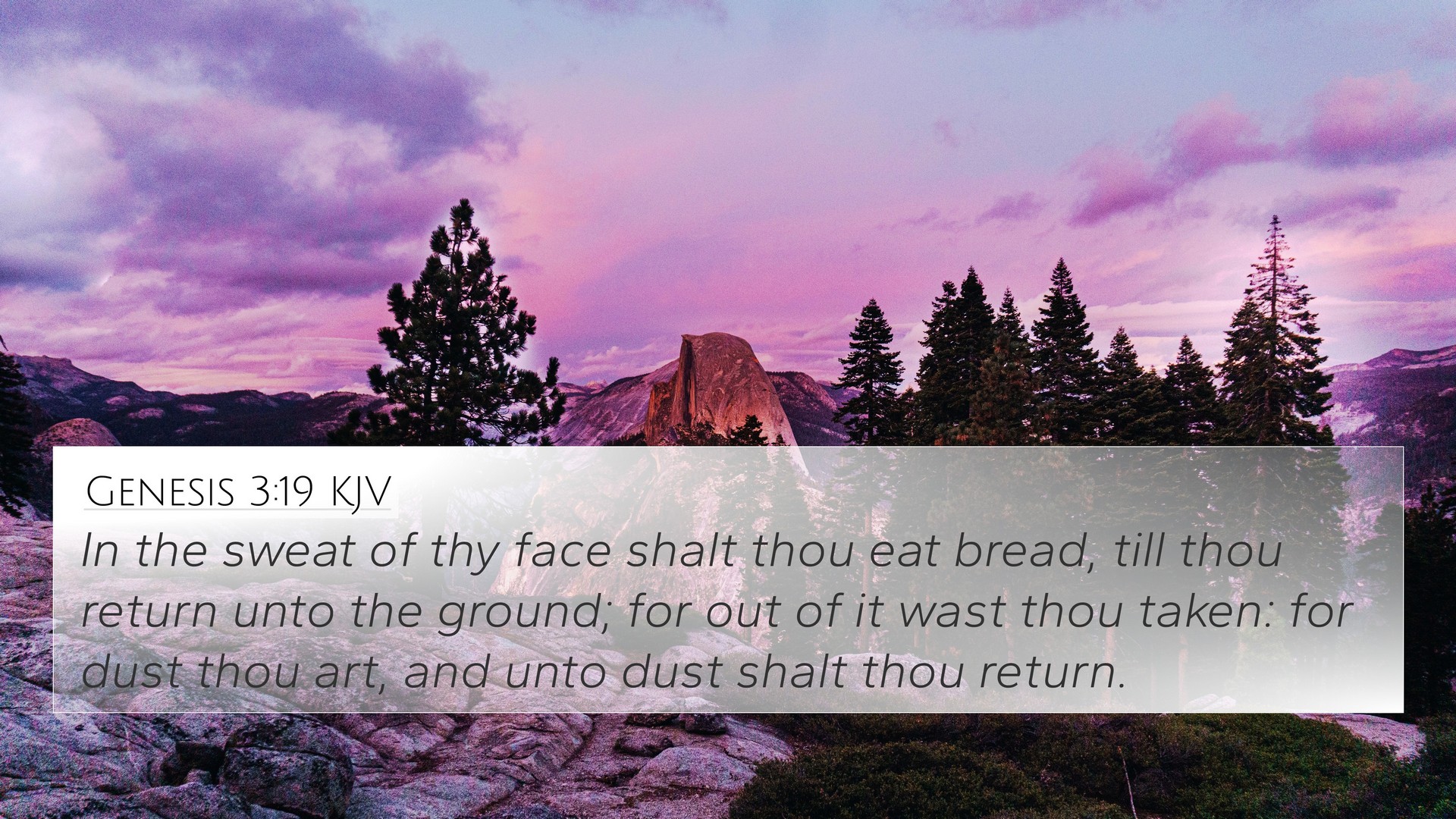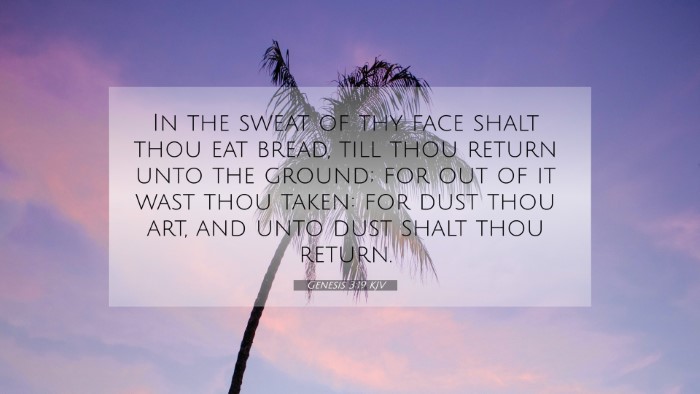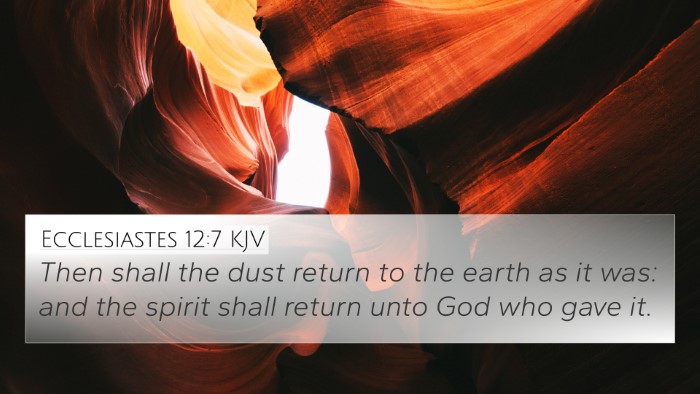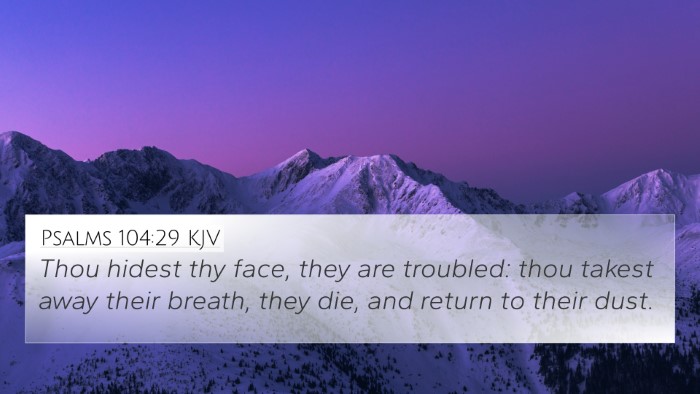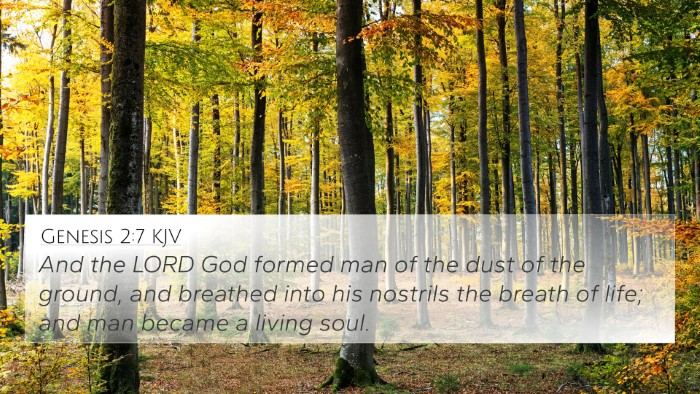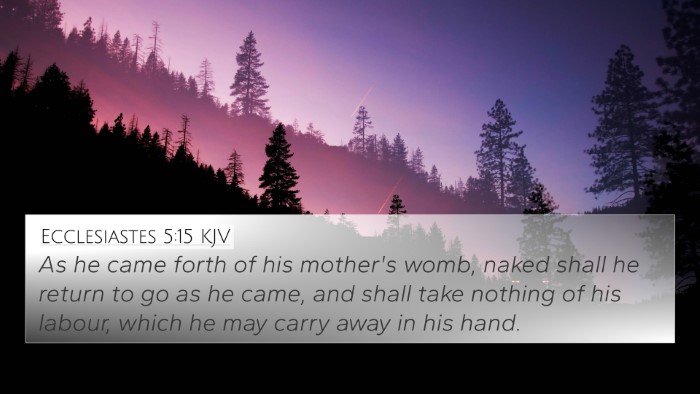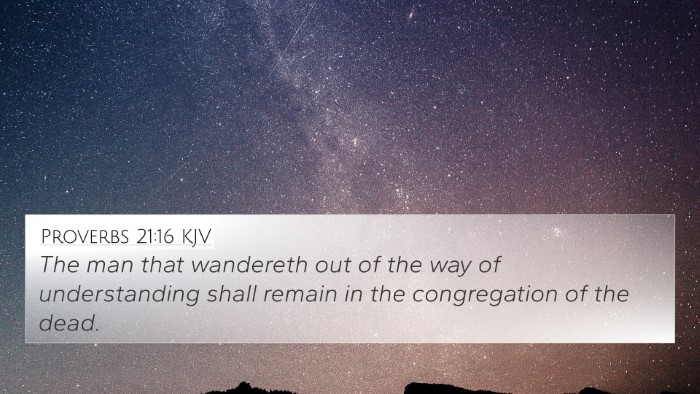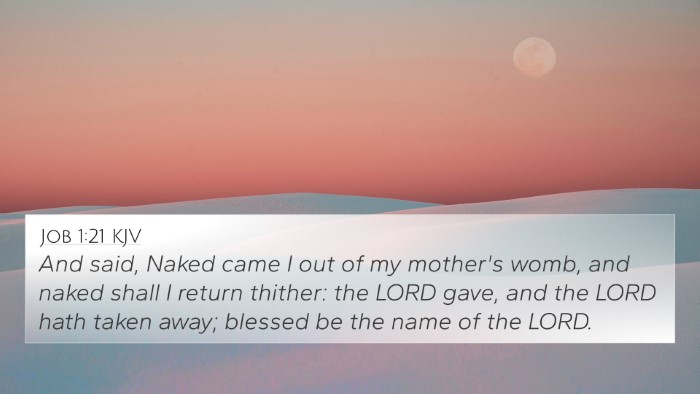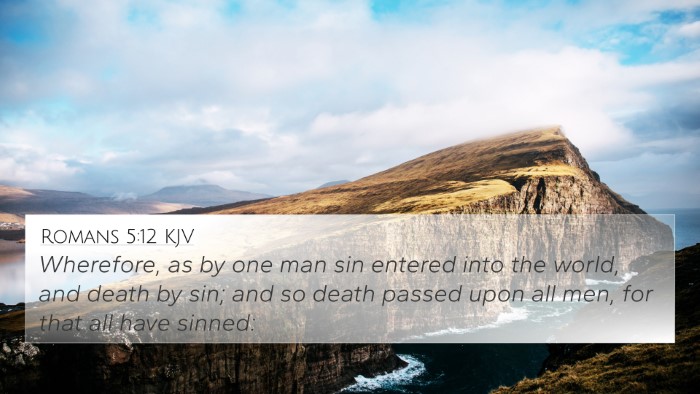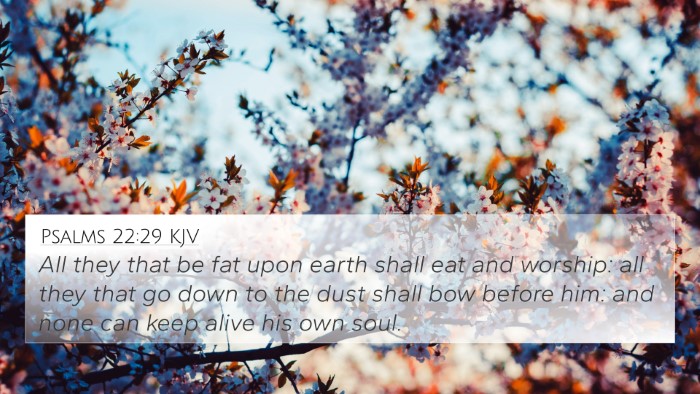Understanding Genesis 3:19
Verse: Genesis 3:19 - "In the sweat of thy face shalt thou eat bread, till thou return unto the ground; for out of it wast thou taken: for dust thou art, and unto dust shalt thou return."
Summary of Meaning
Genesis 3:19 presents a profound reflection on human existence, highlighting the consequences of sin, the labor of life, and the inevitable return to the earth. This verse encapsulates the essence of man's creation from dust and the mortality that comes with it. Below are insights gathered from notable public domain commentaries, including those by Matthew Henry, Albert Barnes, and Adam Clarke.
Insights from Commentaries
Matthew Henry's Commentary
Matthew Henry emphasizes the physical and spiritual realities of this verse. He notes that the curse placed upon Adam after the Fall signifies the toil and effort humanity must endure as they eat from the ground. This labor is a direct response to disobedience, marking a shift in the relationship between humanity and creation. Henry articulates that the reminder of returning to dust serves as a caution against pride and self-sufficiency, calling believers to humility.
Albert Barnes' Notes
Albert Barnes elaborates on the implications of the 'sweat of thy face' phrase, suggesting it denotes hard work and struggle that is now necessary for sustenance. He connects this to the broader theological theme of redemption, pointing out that while the physical condition reflects toil and mortality, it also sets the stage for eventual salvation through Christ. Moreover, Barnes discusses the significance of 'return unto the ground' as a reminder of human mortality and the transient nature of life.
Adam Clarke's Commentary
Adam Clarke interprets this verse within the context of creation and fall. He stresses that this declaration symbolizes the frailty of human life and the necessity for divine grace. Clarke suggests that the transition from the Garden of Eden to a life of work in the soil illustrates the loss of Edenic bliss. He also highlights that the statement about returning to dust points towards the inevitable conclusion of life, reinforcing the biblical theme of mortality.
Bible Cross References
Genesis 3:19 resonates with various scriptures, providing rich thematic connections:
- Ecclesiastes 3:20 - "All go unto one place; all are of the dust, and all turn to dust again." This verse emphasizes the universal truth of mortality.
- Psalm 90:3 - "Thou turnest man to destruction; and sayest, Return, ye children of men." A reflection on God's sovereignty over life and death.
- Genesis 2:7 - "And the LORD God formed man of the dust of the ground." The creation context for understanding humanity's origin.
- Romans 5:12 - "Wherefore, as by one man sin entered into the world, and death by sin; and so death passed upon all men." The theological link between sin and death.
- 1 Corinthians 15:47 - "The first man is of the earth, earthy: the second man is the Lord from heaven." A comparison between Adam and Jesus, emphasizing different destinies.
- Job 34:15 - "All flesh shall perish together, and man shall turn again unto dust." Reinforces the transient nature of human life.
- Hebrews 9:27 - "And as it is appointed unto men once to die, but after this the judgment." Connects mortality with eternal accountability.
Thematic Connections and Interpretations
This verse is key to understanding several important theological themes in the Bible:
- Mortality and Humility: A reminder of human frailty and the importance of humility before God.
- Work and Labor: The theological perspective on the nature of work as both a consequence of sin and a means of providence.
- Redemption: The anticipation of deliverance from the cyclical nature of sin and death through Christ.
- The Nature of Humanity: Explores the duality of being created from dust and being infused with divine breath.
Tools for Bible Cross-Referencing
To delve deeper into the connections between Bible verses, consider using the following methods:
- Bible Concordance: A helpful tool for locating specific verses and their references.
- Cross-Reference Bible Study: Systematic study linking verses with similar themes or messages.
- Bible Reference Resources: Printed and online resources that facilitate cross-referencing.
Conclusion
Genesis 3:19 encapsulates the struggle, human mortality, and the sacred call to recognize one's origins and dependence on God. By understanding this verse and its connections to other scripture, believers can gain a richer comprehension of their faith and the overarching narrative of the Bible.
